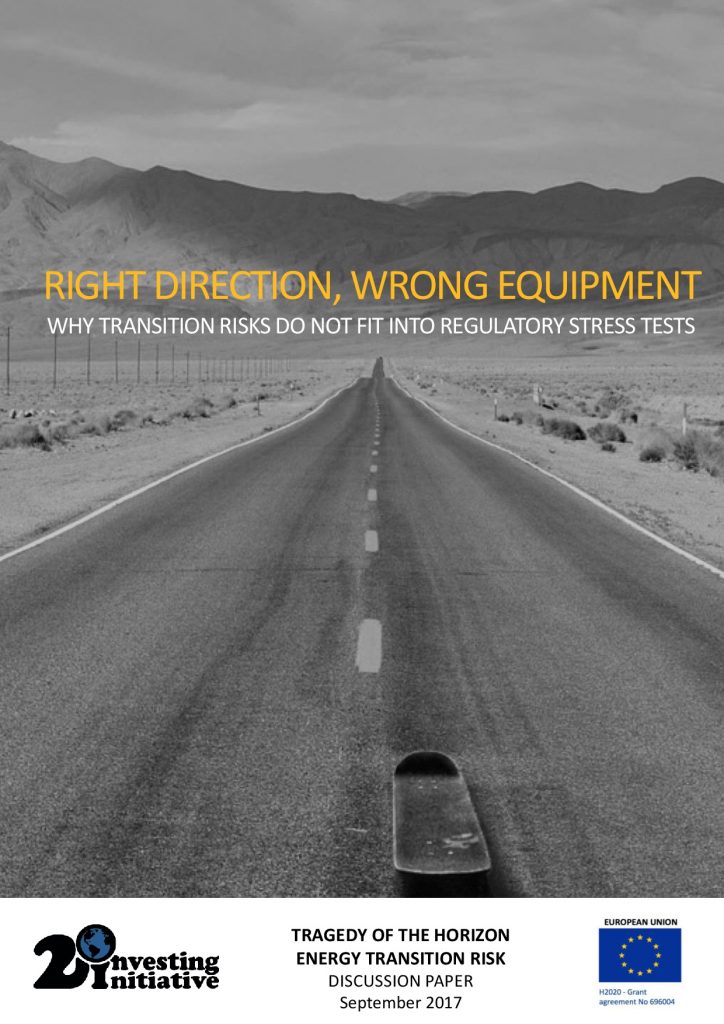The report analyses options for integration into macroeconomic, asset-class and sector risk factors. It focuses in particular around the implications of considering the shock described in the ‘too late, too sudden’ paper of the ESRB advisory scientific board (2016).



